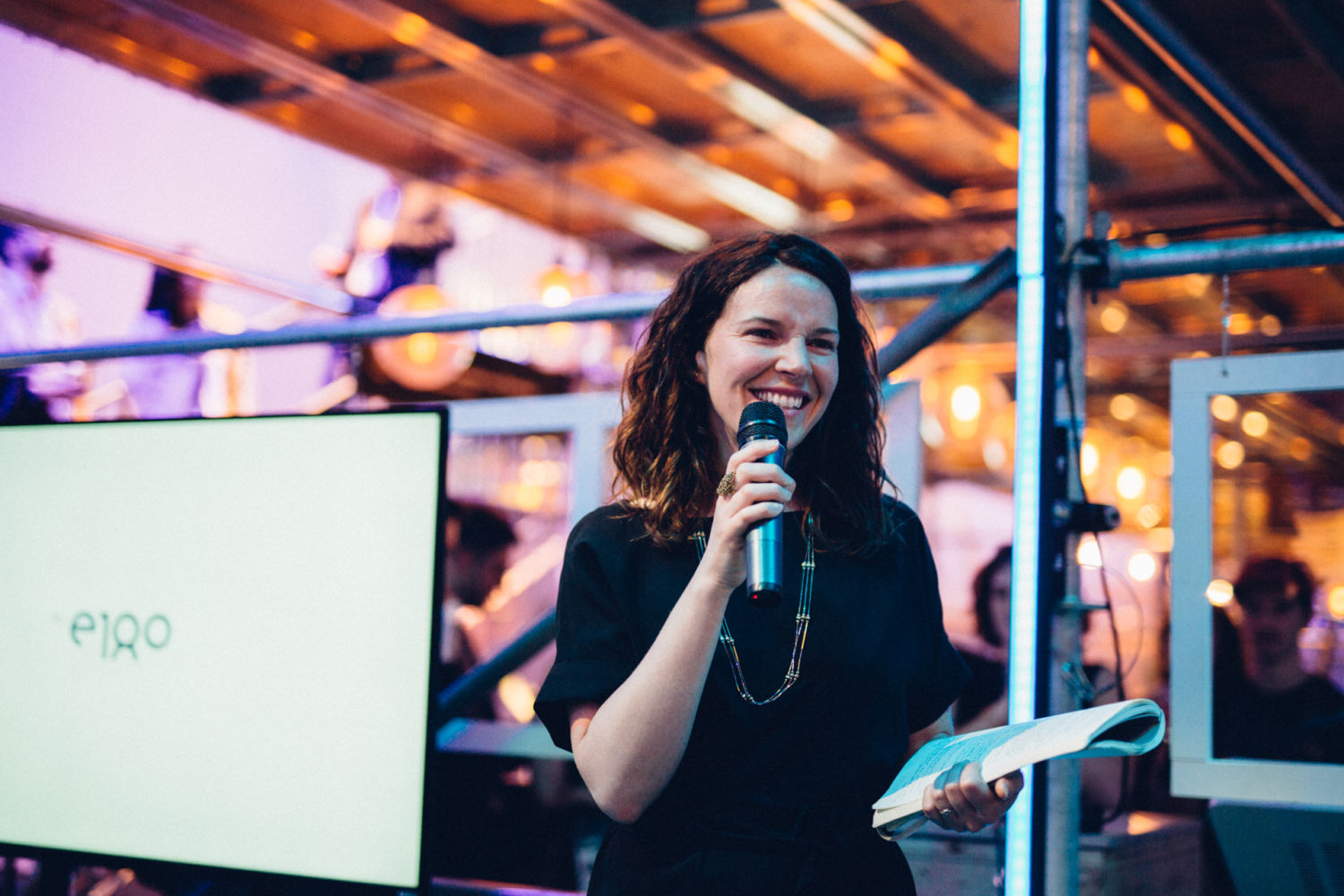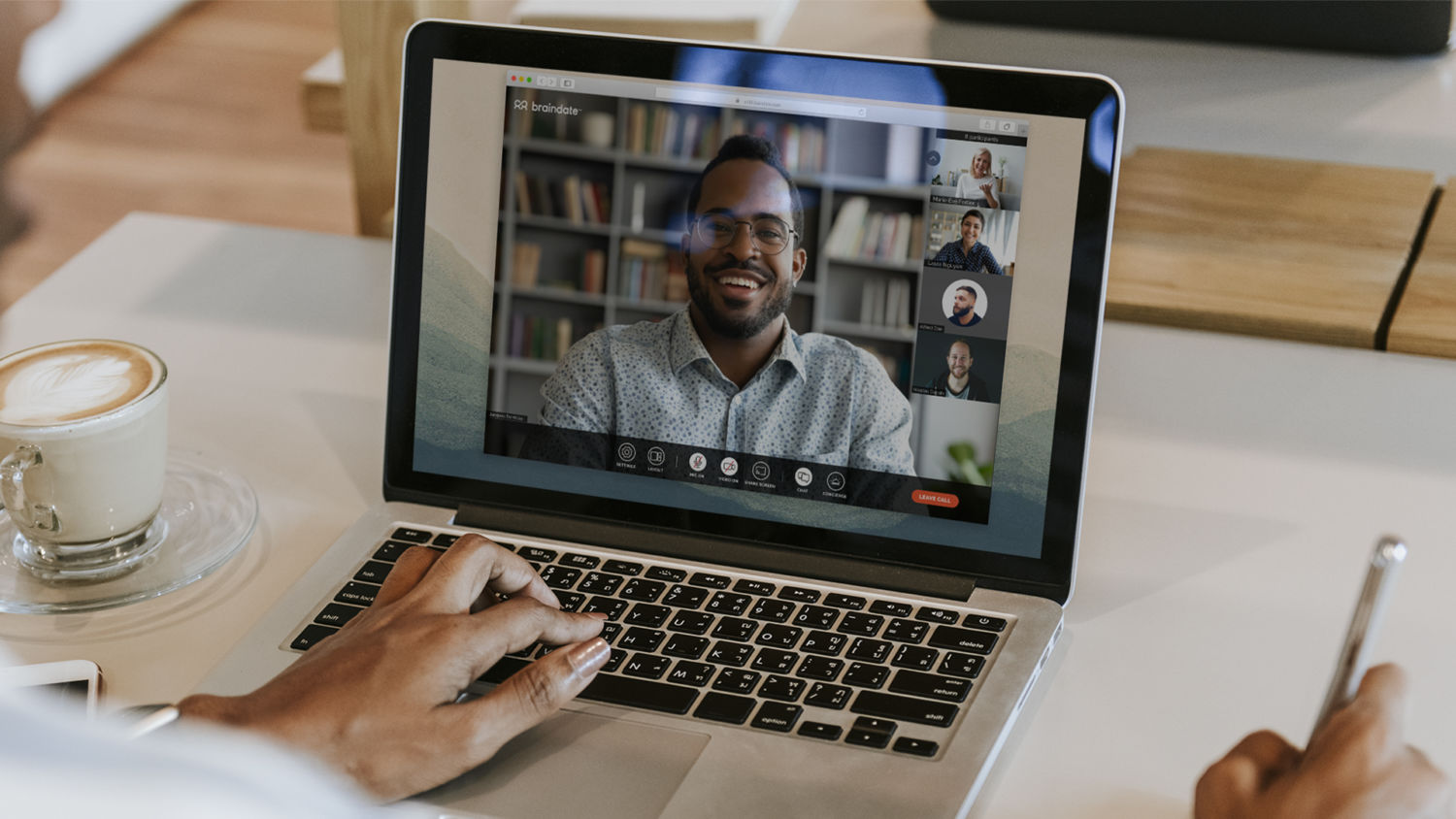Why this founder wants you to focus on peer learning, not just networking, in 2021
Why It Matters
Much of the social impact world’s learning and development happens through connection — learning from others in the field, and having deep conversations. A pandemic makes that difficult, but not impossible, says e180’s Christine Renaud.

This story is in partnership with e180.
Christine Renaud had been offering her company’s Braindate service — a ‘concierge’ on-site at big conferences and events to help attendees connect with and learn from one another — for nine years when the coronavirus pandemic hit early last year.
“We started seeing that one country after another was closing large events, and that week of March 10, we lost all the events we were working on,” Renaud says. “But then, our clients were still turning to us and asking us, ‘What do we do now? We want to go virtual, but nobody knows how.’ It was not a thing to have virtual events. There weren’t best practices for virtual experiences like there are in in-person events.”
So the Montreal-based company did what many had to do in 2020: completely pivoted. Over the course of three short weeks, e180’s small team developed virtual Braindate, a platform and service that helps digital event attendees to connect, either one-on-one or in small groups, for video meetings about specific topics they’re mutually interested in.
Renaud says she has no plans to drop virtual Braindate after the pandemic is over. Virtual events are here to stay, she says, and the world of social impact needs to figure out how to facilitate peer learning — not just networking — in this environment. We sat down with Renaud to learn how.
The following conversation has been edited for clarity and length.
What did you have to consider in moving the Braindate experience from in-person to digital?
When we do in-person events, we always have a learning concierge on-site, and their role is to help people who are not confident about their capacity to have something valuable to share with other people, to make them feel like they’re welcome and they belong. That very human connection and care is our signature, even more than the tech product people now know us for. So the big question was — we’ve always talked about collaborative learning, and that care, and that feeling of safety for our users — so how do we translate that online? How do we not just become a networking platform, because everyone will build a networking platform, and that’s not what we do. We do collaborative learning. So to this day, we do have a learning concierge online not just for tech support, but to help people find the right topics to connect around.
What’s the difference between networking and collaborative learning?
It’s not that we’re against networking, but for us, networking comes as a side benefit of a very strong human experience. Networking in the real world or online can often be all about collecting business cards, and there’s this impression that there’s worth in the volume of humans you collect. But that’s not the way we see the development of a network.
For us, a network of trusted people with whom you’ve developed a sense of reciprocity, and that comes from having a set of valuable connections and conversations with people, not by just getting their business card after a five minute, insignificant chat. Humans connect over collaborative experiences, where they share and learn and contribute to each other’s path and development. Sharing of knowledge and experiences is the foundation of developing strong human relationships.

Why is collaborative or peer learning a good way to develop professionally?
Because I’m an entrepreneur and I love to create, I always put myself in a position of discomfort, of not knowing, of being stretched. I’ve seen in my life, as many innovators have, that the only way you’ll learn is to put yourself at the edge of what has been done before, or by learning what other people around you have tried before and not worked. There’s really no scholarship around the things that are at the forefront of innovation.
So, it comes from my own passion at the genesis of e180, but now that we’ve been doing Braindates for 10 years, it’s something we’ve seen over and over again: people who are innovators in any capacity, they need humans. They need people who have been there before them, people who have failed before them, people who have a piece of the puzzle. You don’t go back to school for four years to learn how to create something new and quickly.
What advice would you have for social impact organizations wanting to foster this kind of peer learning and connection digitally?
Something we’ve been encouraging our clients to do is to provide space and time to help their participants to focus on intentionality. I’m an educator, and I believe strongly that having clear intentions can transform your whole learning experience. Owning the reason why you’re attending a place where you’re supposed to be learning changes everything. So, before even focusing on peer-to-peer connection, focus on the personal ‘why’ for participants. Why are you here? What are you trying to get out of it? What is a project that challenges you and what do you need to be able to tackle it better? And then, help them find the right people to talk to.
The secret sauce of Braindate is to help participants be very specific about what they’re interested in sharing or learning. If I attend a conference about social innovation and the only thing you allow me to do is say I’m interested in learning about social innovation, it really doesn’t help me at all. The big added value is to help folks be very specific about what they want to learn, and to connect them with people who have the right knowledge.
